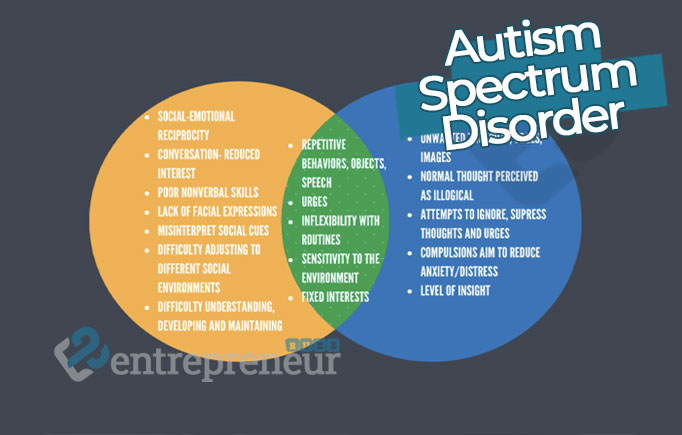Autism Spectrum Disorder (ASD) is a neurodevelopmental condition that affects many children and teens and can significantly impact their mental health and well-being. This blog post will discuss strategies for supporting teens with ASD and mental health needs.
One of the most important things that parents and caregivers can do is to contact a child therapist to understand how to support teens with ASD and mental health needs is to provide them with structure and routine—scheduling regular meals, bedtimes, and consistent homework and other activities. Having a good routine can help those kids with ASD better manage their symptoms, providing them with a sense of predictability and stability.
ASD and Mental Health
Helping children and teens with Autism Spectrum Disorder and mental health needs understand and accept their condition is crucial to creating a good atmosphere at home and school. Many all-age children with ASD may try to conceal or downplay their symptoms out of embarrassment or shame. Parents and other adults who are responsible for teens must inform them about ASD and assist them in realizing that it is a condition that is beyond their control. Please encourage them to talk about their thoughts and feelings while reassuring them that having ASD is okay.
Children and Teens with Autism Spectrum Disorder may experience co-occurring conditions like anxiety or depression; parents and other caregivers should be aware of this possibility. These problems must be addressed to provide the best care possible because they may exacerbate ASD symptoms.
Supporting minors with ASD and mental health needs also means assisting them in acquiring social skills and forming wholesome relationships with others. This may entail encouraging them to participate in extracurricular activities and social gatherings, imparting social skills, and teaching communication skills.
Professional Assistance
The need for professional assistance should always be considered. Teens with ASD and mental health needs can receive support and direction from a therapist or counselor, who can also assist them in creating effective coping mechanisms. Additionally, they might be able to offer medication if necessary.
Knowing how ASD may affect a teen’s sense of self-worth and self-esteem is also crucial for parents and other caregivers. Children and Teens with Autism Spectrum Disorder may experience low self-esteem and feelings of inadequacy and may compare themselves to their peers. Parents and other adults who care for children should encourage them, recognize and celebrate their accomplishments, and reaffirm their inherent worth and competence.
It is also to ensure that children and adolescents with ASD are receiving the proper support and accommodations, parents and other caregivers must collaborate closely with the educational system. Examples are a modified curriculum, more testing time, and a quiet workspace.
Benefit
Teens with ASD can benefit from parents and caregivers caring for themselves and their crucial mental health. Parents and other caregivers must set aside time, engage in self-care, and seek support because caring for a teen with ASD and mental health needs can be difficult and stressful.
Supporting children and teens with Autism Spectrum Disorder and mental health needs can be complex and challenging. ASD is a neurodevelopmental disorder that affects social communication and behavior, and it often co-occurs with other mental health conditions such as anxiety, depression, and attention deficit hyperactivity disorder (ADHD). Children and teens with ASD and mental health needs may struggle with social interaction, emotional regulation, and communication, impacting their ability to form relationships, participate in school and community activities, and maintain their overall well-being. Providing these children and teens with appropriate individualized support is important to help them thrive.
Understanding Social Cues
Children and teens with ASD and mental health needs may have difficulty understanding and interpreting social cues, making social interaction challenging. They may struggle with making eye contact, understanding facial expressions, and interpreting tone of voice, which can affect their ability to form relationships and communicate effectively with others. Additionally, individuals with ASD and mental health needs may experience intense emotions, such as anxiety, sadness, or anger, which can be difficult to manage and regulate. These challenges can lead to difficulty in daily activities, such as attending school, participating in extracurricular activities, or even leaving the house.
Effective support for children and teens with Autism Spectrum Disorder and mental health needs requires a tailored approach considering their unique needs and challenges. This may include specialized therapies, such as applied behavior analysis (ABA) or speech therapy, social skills training, cognitive-behavioral interventions, medication management, and other evidence-based treatments. Additionally, it is important to create a supportive and inclusive environment that values the unique strengths and challenges of individuals with ASD and mental health needs. This can include accommodations in the school or workplace and opportunities to engage in activities that align with their interests and abilities.
Conclusion
In conclusion, supporting children and teens with ASD and mental health needs requires a comprehensive and collaborative approach. Parents, caregivers, educators, and mental health professionals all play important roles in providing these individuals with the necessary support and interventions. By delivering tailored and evidence-based interventions and creating supportive and inclusive environments, we can help children and teens with ASD and mental health needs reach their full potential and lead fulfilling lives.
Supporting children and teens with Autism Spectrum Disorder and mental health needs requires a comprehensive and collaborative approach. Parents, caregivers, educators, and mental health professionals all play essential roles in providing these individuals with the necessary support and interventions.
This may include specialized therapies, social skills training, cognitive-behavioral interventions, medication management, and other evidence-based treatments. It is also essential to create a supportive and inclusive environment that values the unique strengths and challenges of individuals with Autism Spectrum Disorder and mental health needs. By working together and providing the proper support, we can help children and teens with ASD and mental health needs reach their full potential and lead fulfilling lives.

